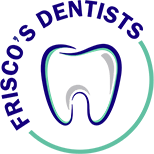There has always been a link between pregnancy and an increased risk in developing gingivitis. Typically, this link is attributed to the fact that most pregnant women do not eat healthy foods or even a variety of foods, especially during their first trimester when they struggle to find anything they can keep down. On the same token, many pregnant women vomit more than usual due to the increased hormone levels in the first trimester that throws a monkey wrench in their ability to regulate their sugar levels. Increased vomiting introduces stomach acid to your teeth and gums more often, thereby eroding enamel and healthy gum tissue. Just ask any woman who has had a child how delightful the first trimester can be on your ability to eat. Poor diet and frequent vomiting constitute a recipe for increasing the risk for gum disease like gingivitis. It’s just yet another joy pregnant women have to be aware of.
However, new research has found another link as to why pregnant women are more likely to develop gingivitis than when not pregnant–the increased hormone levels.
Researchers from the University of Helsinki measured the salivary estrogen levels and examined the periodontal health of 30 pregnant women and 24 non-pregnant women (as a control group). More specifically, they examined the participants for visible plaque and gum bleeding. For the pregnant women, they examined them three times during pregnancy and twice after giving birth. The control group was examined once a month for three months.
Overall, the team found that pregnant women with high estrogen levels had the highest frequency of pregnancy-related periodontal disease all throughout pregnancy and even after giving birth. Pregnant women who had high estrogen levels and high levels of plaque had an even higher rate of developing gum disease. More interestingly, they found that women who had increased estrogen levels throughout pregnancy were more likely to develop gingivitis than pregnant women who only had high levels of dental plaque.
So at the very least, the blame isn’t 100% on the shoulders of pregnant women for their poor diets and habits during their pregnancies. They can attribute a good portion of the risk to the fact that their hormone levels are so high during pregnancy, which happens to also cause the reasons why pregnant women eat so poorly and vomit a little more than usual. However, what pregnant women must do to help prevent pregnancy-related periodontal disease remains the same. Pregnant women must be extra vigilant with their dental hygiene and care, ensuring that they brush and floss their teeth regularly, especially after a nausea episode. If possible, schedule teeth cleaning during your pregnancy to help remove excess plaque and reduce your risk.
The study was published in the December 2012 issue of the Journal of Periodontology.


